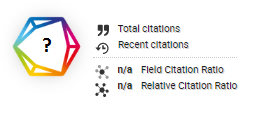Mangiferin Content in N-Hexane and Diethyl Ether Fractions of Mango (Mangifera indica L.) Leaves Var. Gedong Gincu
DOI:
https://doi.org/10.46984/sebatik.v28i2.2513Keywords:
Mango, Mangiferin, n-Hexane Fraction, Diethyl Eter Fraction, RP-HPLCAbstract
Mango (Mangifera indica L.) is a tropical fruit plant with high economic value and potential as a source of phytopharmaceuticals. One notable mango variety is Gedong Gincu, originating from Majalengka Regency, West Java, which contains active compounds such as mangiferin, flavonoids, saponins, and tannins with various therapeutic effects. This study aims to compare the mangiferin content in the n-hexane and diethyl ether fractions of Gedong Gincu mango leaf extract using the Reversed-Phase High-Performance Liquid Chromatography (RP-HPLC) method. Mango leaves were extracted with ethanol, followed by fractionation using n-hexane and diethyl ether. The resulting fractions were then analyzed for mangiferin content using RP-HPLC. The weights of the n-hexane and diethyl ether fractions were 13.418 g and 8.21 g, respectively. Phytochemical screening revealed the presence of flavonoids, alkaloids, phenols, tannins, and saponins. RP-HPLC analysis showed differences in mangiferin content between the two fractions, with retention times (RT) of 1.430 minutes for the n-hexane fraction and 1.473 minutes for the diethyl ether fraction, indicating variations in solubility and interaction with the mobile phase. The RP-HPLC quantification revealed that the n-hexane fraction contained 339.5 mg/L of mangiferin, while the diethyl ether fraction contained 547.3 mg/L. This study provides valuable insights into the comparison of extraction solvents for mangiferin, which can be further utilized in the development of herbal formulations.
References
Afifah N, Budi Riyanta A, Amananti W, Article R, Kunci K, M. W. (2023). Pengaruh Waktu Maserasi terhadap Hasil Skrining Fitokimia Pada Ekstrak Daun Mangga Harum Manis (Mangifera indica L.). 5.
Ayyun, K., Khafidz, Y., Rosydah, I., Atikah, N., & Arianti, S. P. (2023). Artikel Riview : Profil Studi Fitokimia Dan Aktivitas Farmakologi Buah Mangga ( Mangifera Indica L .). JFKES: Journal Sains Farmasi Dan Kesehatan, 01(02), 60–68.
Bhardwaj, S.k., Dwivedi,K., & Agarwal, D. D. (2015). Hplc Method Development and Validation: a Review. International Research Journal of Pharmacy, 5(4), 76–81. https://doi.org/10.7897/2230-8407.04407
Cahyanto, T., Fadillah, A., Ulfa, R. A., Hasby, R. M., & Kinasih, I. (2020). Kadar Mangiferin Pada Lima Kultivar Pucuk Daun Mangga (Mangifera indica L.). Al-Kauniyah: Jurnal Biologi, 13(2), 242–249. https://doi.org/10.15408/kauniyah.v13i1.14810
Depkes RI. (2000). Parameter Standar Umum Ekstrak Tumbuhan Obat.
Depkes RI. (2017). Farmakope Herbal Indonesia edisi II. In FHI (pp. 97–103). https://doi.org/10.2307/jj.2430657.12
Gandjar, I. G. & Rohman, A. (2013). Kimia Farmasi Analisis (11th ed.). https://inlislite.uin-suska.ac.id/opac/detail-opac?id=25838
Gowda, N., Kumar, P., Panghal, S., & Rajshree, M. (2010). ICH guidance in practice: Validated reversed-phase HPLC method for the determination of active mangiferin from extracts of Mangifera indica linn. Journal of Chromatographic Science, 48(2), 156–160. https://doi.org/10.1093/chromsci/48.2.156
Hanifa, N. I., Wirasisya, D. G., Muliani, A. E., Utami, S. B., & Sunarwidhi, A. L. (2021). Phytochemical Screening of Decoction and Ethanolic Extract of Amomum dealbatum Roxb. Leaves. Jurnal Biologi Tropis, 21(2), 510–518. https://doi.org/10.29303/jbt.v21i2.2758
Jehan, N. N., Titik Sunarni, & Dian Marlina. (2023). Characterization of microencapsulated Saga Leaves Extract (Abrus precatorius L.) and Analgetic Activity Tests in Male Mice (Mus musculus). Jurnal Farmasi Dan Ilmu Kefarmasian Indonesia, 10(3), 280–289. https://doi.org/10.20473/jfiki.v10i32023.280-289
Kunti, D. A., & Faqih, M. (2023). Aktivitas Antibakteri Fraksi-Fraksi Daun Mangga (Mangifera indica L.) Harum Manis terhadap Bakteri Bacillus subtilis. Jurnal Ilmu Farmasi Dan Farmasi Klinik, 1, 11. https://doi.org/10.31942/jiffk.v0i1.9388
Mahdiyah, L. L. Z. T., Muhtadi, A., & Nur Hasanah, A. (2020). Teknik Isolasi dan Penentuan Struktur Mangiferin: Senyawa Aktif dari Tanaman Mangga (Mangifera indica L.). Majalah Farmasetika, 5(4), 167–179. https://doi.org/10.24198/mfarmasetika.v5i4.27238
Nguyen, H. T., Miyamoto, A., Hoang, H. T., Vu, T. T. T. (2024). Effects of Maturation on Antibacterial Properties of Vietnamese Mango (Mangifera indica) Leaves. Molecules, 29(7), 1–17. https://doi.org/10.3390/molecules29071443
Padmapriya, K., Dutta, A., Chaudhuri, S., & Dutta, D. (2012). Microwave assisted extraction of mangiferin from Curcuma amada. 3 Biotech, 2(1), 27–30. https://doi.org/10.1007/s13205-011-0023-7
Permata, E. I., & Khoirunnisa, Y. (2020). Efek Mangiferin dalam Mengatasi Masalah Kesehatan. Jurnal Penelitian Perawat Profesional, 2(1), 31–38. https://doi.org/10.37287/jppp.v2i1.38
Retnaningtyas, Y., Kristiningrum, N., Renggani, H. D., sari, I. P. (2020). Stability Indicating RP-HPLC for Quantification Mangiferin in Extract of Three Species Mango Leaves. Indonesian Journal of Chemical Research, 8(2), 15–20. https://doi.org/10.30598//ijcr
Rosalina V, E. S. (2019). Perbandingan Uji Aktivitas Antibakteri Ekstrak Etanol pada 5 Spesies Daun Mangga Harum Manis (Mangifera indica) terhadap Bakteri Bacillus subtilis dan Providencia. Arah Kebijakan Dan Optimalisasi Tenaga Kesehatan Menghadapi Revolusi Industri 40, 82.
Sukandi, P., & Landy, A. (2023). Pengembangan Potensi Buah Mangga Gedong Gincu Majalengka ke Pasar Internasional. JIIP - Jurnal Ilmiah Ilmu Pendidikan, 6(4), 2318–2321. https://doi.org/10.54371/jiip.v6i4.1863
Tayana, N., Inthakusol, W., Duangdee, N., Chewchinda, S., Pandith, H., & Kongkiatpaiboon, S. (2019). Mangiferin content in different parts of mango tree (Mangifera indica L.) in Thailand. Songklanakarin Journal of Science and Technology, 41(3), 522–528. https://doi.org/10.14456/sjst-psu.2019.82
Tiwari, P., Kumar, B., Kaur, M., Kaur, G. (2011). Phytochemical screening and Extraction: A Review. Iternational Pharmaceutica Sciencia, 1(1). https://doi.org/10.1002/hep.29375
Wandira, A., Cindiansya, Rosmayati, J., Anandari, R. F., Naurah, S. A., & Fikayuniar, L. (2023). Menganalisis Pengujian Kadar Air Dari Berbagai Simplisia Bahan Alam Menggunakan Metode Gravimetri. Jurnal Ilmiah Wahana Pendidikan, 9(17), 190–193.
Zakiah, R.M., Elsyana, V., Marcellia, S. (2023). Perbandingan Aktivitas Anti Bakteri Ekstrak etanol dan ekstrak N-heksana daun Mangga Arum Manis (Mangifera Indica L. var arum manis) terhadap Propionabacterium Acnes. Jurnal Ilmiah Wahana Pendidikan, 9(1), 367–376.
Downloads
Published
How to Cite
Issue
Section
License
Copyright (c) 2024 Eva Luviriani, Rosellynia Calyptranti, Nabilah Nauli Jehan

This work is licensed under a Creative Commons Attribution 4.0 International License.
Authors retain all their rights to the published works, such as (but not limited to) the following rights; Copyright and other proprietary rights relating to the article, such as patent rights, The right to use the substance of the article in own future works, including lectures and books, The right to reproduce the article for own purposes, The right to self-archive the article








